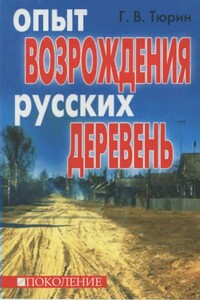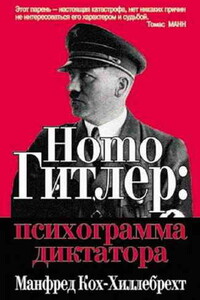The Boy Scouts In Russia - [28]
"Where are you going, I say? Answer!" roared the Uhlan.
But Fred only smiled and pointed first to his ears and then to his mouth. By pantomime he pretended to be deaf and dumb. And when the officer came up, Fred was still smiling-and silent. He knew he had never seen this officer before. CHAPTER XIII
"What's the matter with him, Schmidt!" asked the officer.
Fred knew enough of German uniforms by this time to place him as a lieutenant of the lowest grade, and was thankful that he did not have an experienced man to deal with.
"Deaf and dumb, I think, Herr Lieutenant," said the man. "I rode up behind him, calling to him and making a good deal of noise, but he did not even know I was coming until I was on top of him."
"Well, he can't go this way!" said the lieutenant. "How are we to make him understand that?"
"If I dismounted and turned him about, he might perhaps understand," said the soldier.
"Try it!"
Fred had hard work to conceal his amusement but he managed it. The soldier solemnly turned him about and pushed him in the direction whence he had come. But Fred immediately turned around, walked a couple of paces as he had been going, and then stopped, smiling broadly. Then he turned around, shook his head violently, and turned back.
"He's trying to tell us he wants to keep on the way he was going," said the lieutenant.
The two Germans seemed to be puzzled, but then the officer got an idea. He produced paper and pencil and wrote hurriedly.
"Who are you? Where are you going?" he wrote. Then he handed the paper to Fred. Fred hesitated for a moment. He understood German and could talk it very well. But he was a little nervous about writing it, especially in the German script. He could write it, but he was not sure that he could write it so well that it would seem like the work of a German. However, he took the chance.
"My name is Gebhardt," he wrote. "I come from Munich, and I am visiting my uncle and aunt here at Gumbinnen. My uncle sent me to Insterberg and then I found I could not go back by train. Soldiers have made me turn around so many times that it has taken me all this time to get here. Why can I not go to Gumbinnen?"
The officer took the paper and, when he had read it, told the soldier. They seemed to find Fred's explanation plausible, and his writing had passed muster.
"Here is a fine mess!" said the lieutenant. "Poor boy! I feel sorry for one with such an affliction! And is he not between the devil and the deep blue sea? In Gumbinnen there will be Russian cavalry by to-morrow-and at Insterberg, I suppose, the first real battle will be fought!"
Fred caught his breath. He was getting what he wanted now, certainly! If only he did not betray himself! If the officer would only go on and tell him a little more! And he did go on, almost as if he were speaking to himself.
"If his people have any sense, they will have cleared out of Gumbinnen before this. He knows someone at Insterberg, perhaps, but if it is the plan to let the Russians come so far without fighting and then strike while they are there, the population will have been ordered out. And they have been unloading troop trains at Insterberg, too-so that the Russians would not find out how many men we had here. Eh-take him up behind you, Schmidt! We can't abandon him. Perhaps the hospital people or the cooks can make some use of him."
Fred heard this with a start of dismay. It was decidedly more than he had bargained for, because now that he had the information he had come to get, he wanted to get back to the wireless as quickly as possible. It did him no good to know the German plan, or to have a hint of what it was, unless he could pass on his knowledge to those who could make some use of it. But he could not protest when the officer wrote down an explanation of what was to be done with him, telling him that the road to Gumbinnen was not safe, but that he would see to it that Fred should get to a safe place.
So when the soldier Schmidt patted his horse's back and indicated that Fred should climb up, Fred had no choice but to obey. He had plenty to think of, too, as they rode along. For one thing, while he had taken his chance and won, since this officer had not seen him before, there was every prospect that he would be recognized if he were now taken to headquarters. He supposed that that was where they were going, and he knew that a number of the officers who had left the parsonage with General von Hindenburg on the night of the Cossack raid would be present. It would be strange, indeed, if none of them knew him. And it took no imagination to guess what recognition would mean.
There was just one thing in his favor now. It was beginning to get dark. He did not know how far they had to ride, but he hoped it was a long way. Ordinarily, he would not have wanted the ride to be prolonged because his position was highly uncomfortable. Fred could ride well himself, but riding alone on a horse and sitting behind a man who fills his own saddle with very little to spare are two different things.

В книге рассказывается история главного героя, который сталкивается с различными проблемами и препятствиями на протяжении всего своего путешествия. По пути он встречает множество второстепенных персонажей, которые играют важные роли в истории. Благодаря опыту главного героя книга исследует такие темы, как любовь, потеря, надежда и стойкость. По мере того, как главный герой преодолевает свои трудности, он усваивает ценные уроки жизни и растет как личность.

Текст воспроизведен по изданию: Письма Бичурина из Валаамской монастырской тюрьмы // Народы Азии и Африки, № 1. 1962.

Плачевная ситуация в российских деревнях известна всем. После развала масштабной системы государственного планирования исчезли десятки и сотни тысяч хозяйств, произошел массовый отток населения из сельских районов, были разворованы последние ценности. Исправление ситуации невозможно без эффективного самоуправления в провинции.Организованный в 1997 году Институт общественных и гуманитарных инициатив (ИОГИ) поставил перед собой цель возрождения сельских районов Архангельской области и добился уникальных результатов.

В настоящее издание включены все основные художественные и публицистические циклы произведений Г. И. Успенского, а также большинство отдельных очерков и рассказов писателя.

До сих пор историки многого не знают о Гитлере. Каковы были мотивы его мыслей и поступков? На чем основана легенда о его громадных знаниях и сверхчеловеческих способностях влиять на людей? Автор этой книги, немецкий профессор, в результате долгих и кропотливых исследований создал психограмму человека, возглавлявшего III рейх.

В настоящей книге Конан Дойл - автор несколько необычных для читателя сюжетов. В первой части он глубоко анализирует произведения наиболее талантливых, с его точки зрения, писателей, как бы открывая "волшебную дверь" и увлекая в их творческую лабораторию. Во второй части книги читатель попадает в мистический мир, представленный, тем не менее, так живо и реально, что создается ощущение, будто описанные удивительные события происходят наяву.